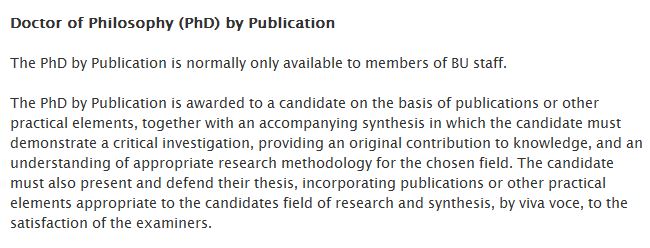Monday
Labour’s manifesto for next year’s election will include a pledge to scrap the coalition’s £9,000-a-year tuition fees and may replace it with a maximum of £6,000, Douglas Alexander has confirmed. Labour is still, however, to agree a long-term policy.
Information and guidance
A study by the consumer group Which? finds that tens of thousands of students did not attend any university open days before completing applications and half failed to consult lecturers about their course. Thousands of students do not research university before applying (Telegraph)
Private schools
Senior politicians are peddling “ignorant” myths about private schools and creating false barriers between the independent and state education system, the former headmaster of Harrow has warned. Private schools being undermined by ‘lazy stereotypes’ (Telegraph)
Tuesday
The pick of today is a piece in the THE, written by Liam Byrne (Shadow Minister for Universities and Skills). In the comment piece, Liam says that he will be setting out Labour’s funding plan in due course but “Ed Miliband has articulated a clear direction of travel on this: a core goal must be to bring down the levels of debt cancellation that are making the current system unsustainable.” Liam Byrne: ‘Funding system combines worst of a free-for-all and a money pit’ (THE)
Possible Conservative policy
Universities would have to apply new aptitude tests and cut the number of drop-outs in plans for a shake-up of the student loans system. Senior Conservatives are considering reforms that would reduce its cost and crack down on poor quality degrees. They include a new minimum qualification for students who qualify for taxpayer-backed loans and an end to the right to charge fees at institutions which see large numbers of students fail to finish courses or find well-paid jobs. Crackdown on dropouts to cut student loans: Tories consider reforms to reduce costs and tackle poor quality degrees (Daily Mail)
How have tuition fees affected students?
The Telegraph look at what affect the rise in tuition fees has had on students. The article says “fears that the higher rate of fees would put students off applying – particularly the very poorest – appear not to have materialised as degrees retain their value in the jobs market.” The final comment is somewhat surprising given the Telegraph rhetoric on graduate unemployment. How have tuition fees affected students? (Telegraph)
System reform
Peter Scott argues that tinkering with the tuition fees system will not fix its problems. He says there “should be a fundamental rethink. The high-fees funding regime in higher education is sadly likely to be patched and mended rather than changed.” Opinion: Tinkering isn’t going to fix the failing fees system (THE)
Student representation
A report by NUS – on the changing nature of student leadership and its impact on the student experience – finds student officers now put their role as representatives far above their role as activists. Student union reps- happier in the boardroom than at the sit-in? (Guardian)
Best April Fool of the day (well hopefully it’s an April Fool)
Students could be asked to wear gowns and mortarboards on campus in plans by education secretary Michael Gove to “restore rigour” to higher education, the THE has learned. Gowns and mortarboards ‘could be compulsory’ under Gove (THE)
Wednesday
As the debate on how we fund higher education continues to rumble on, University Alliance feature in two pieces setting out an alternative vision.
In the Guardian, and responding to the current controversy over the RAB charge, Libby Hackett says, “this is a really important issue that people tend to avoid because it is both technical and highly politicised. We need to consider some intelligent solutions that will deliver a more sustainable funding platform.” Tuition fees blunder: ‘there’s no need for this spiralling public cost’ (Guardian)
Writing in the Times, and responding to Labour’s £6,000 plan, Libby says, “fees of £6,000 may end up as a credible position but it is deeply worrying that Labour sees this as its starting point rather than the result of calculations based on a well-designed student finance and university funding system.” Big picture, small print in student loan jungle (Times)
Design&
Rob Law, Founder of Trunki and graduate of Northumbria University, features in an article promoting our Design& project. Northumbria University hailed as shining example in call for design focus (The Journal)
International students
A new analysis from HEFCE has found that the number of foreign students, recruited by universities, has dropped for the first time in three decades. We have today called for a reintroduction of two-year post study work visas.
Student satisfaction
Student satisfaction does not say much about the quality of education, says Joanna Williams. Labour’s manifesto needs to be more radical and push for intellectual challenge. Students are made to believe that ‘university is all about them’ (Guardian)
HE ‘errors’
Almost one in 10 university degrees claimed by graduates have “errors”, such as wrong grades or subjects, according to the agency which carries out checks for employers. The Higher Education Degree Datacheck (HEDD) says they also see degree certificates from bogus universities. Some errors could be honest mistakes, but there is also clear evidence of fraud, says HEDD’s Jayne Rowley. Degree checks ‘uncover grade fraud’ (BBC)
Skills and employability
John Longworth, DG of the BCC, has accused some universities of ‘losing the plot’ when it comes to preparing the future workforce. Britain told to prepare for ‘real austerity’: Warning over future from business leaders (This is Money)
Thursday
In the news today, figures published by UUK today reveal that Universities’ contribution to the UK’s economy has increased by 24%. UK higher education generates £73 billion for the economy and contributes 2.8 per cent of the UK’s total gross domestic product. This is reported in the Times Higher Education (THE), where Sir Christopher Snowden is quoted, “with the 2015 general election on the horizon, this report serves as a timely reminder to policymakers of universities’ growing impact on local communities, jobs and the wider economy” (THE).
University funding
- UK universities should be allowed to charge higher tuition fees to students with wealthier backgrounds according to the Morton Schapiro, president of Northwestern University in Illinois (THE).
- The London Evening Standard features journalist and economist Ann McElvoy criticising Labour’s policy proposal to charge £6,000 tuition fees saying, “everything speaks for the idea – except the facts”.
International students
- An opinion piece by Ross Clark in The Times criticises the government for pursuing policies which have led to a decrease in the numbers of foreign students coming to Britain to study (The Times).
- The Times reports that fees from Chinese students are being used by British universities to pay for new campuses and expansions. Vice Chancellors are reported to have said that the popularity of British universities amongst Chinese students is enabling growth during a time of austerity (The Times).
Research Assessment
HEFCE has been asked by David Willetts to review the role of metrics in research assessment. Professor James Wilsdon of the University of Sussex will chair the review, which will look at the role of metric based assessment in determining the quality, impact and other key characteristics of research undertaken in higher education. THE reports that the review could lead to research excellence framework assessments being less frequent (THE).
A report published yesterday by HEFCE looking at decision making has revealed that greater amounts of information does not necessarily mean that people will be better informed or be able to make better decisions. This is reported in THE, overwhelmed university applicants filter out information to cope (THE).
Friday
The main stories from Friday centred on the UUK report on the economic contribution of universities. British universities contribute £73bn to the economy in a year (Independent)
Also, the call by David Willetts to create university campuses in “cold spots”.
Minister proposes university campuses to revive towns (FT)
N.B. All information is provided by University Alliance.




















 New weight change BU paper
New weight change BU paper One week to go! | The 16th Annual Postgraduate Research Conference
One week to go! | The 16th Annual Postgraduate Research Conference Geography and Environmental Studies academics – would you like to get more involved in preparing our next REF submission?
Geography and Environmental Studies academics – would you like to get more involved in preparing our next REF submission? Congratulations to three former BU staff
Congratulations to three former BU staff MSCA Staff Exchanges 2024 Call – internal deadline
MSCA Staff Exchanges 2024 Call – internal deadline Applications are now open for 2025 ESRC Postdoctoral Fellowships!
Applications are now open for 2025 ESRC Postdoctoral Fellowships! Horizon Europe – ERC CoG and MSCA SE webinars
Horizon Europe – ERC CoG and MSCA SE webinars MaGMap: Mass Grave Mapping
MaGMap: Mass Grave Mapping ERC grants – series of webinars
ERC grants – series of webinars